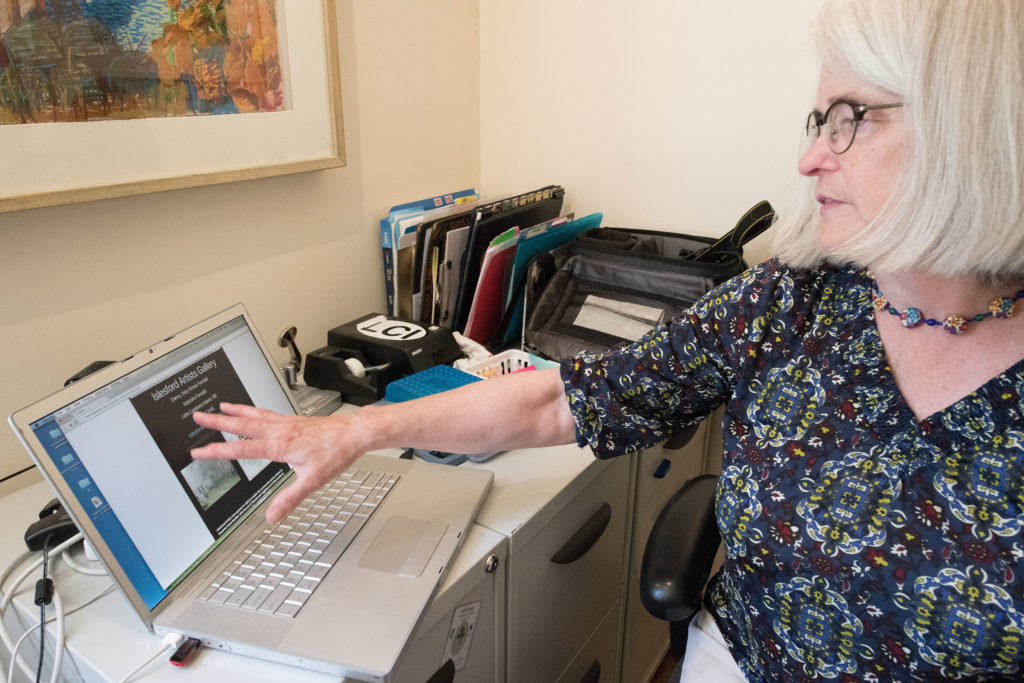Staying connected during this unprecedented time is crucial. Whether it is attempting to continue your work from your home, keeping your child learning by connecting them to resources or to their teachers virtually, or staying in touch with family, now is the time when we have to shift away from in-person interactions to the virtual realm. But with at least 85,000 households in Maine lacking broadband, connecting can be more of a challenge for some than others. It may be that you are unable to get internet at your house, or that you have never needed to connect to fulfil your daily needs, or you are connected to the internet, but your connection is too slow to accomplish anything of note in a timely manner.
The need to virtually connect has come to the fore during this global pandemic. For those who don’t currently have broadband internet access at home there are a myriad of stop-gap options available.
Accessing Wi-Fi
If you do not have internet access at home, or there isn’t enough bandwidth to support multiple users, accessing free Wi-Fi hotspots from a safe distance are a solution. For instance, the University of Maine System’s NetworkMaine is offering to enable “Guest” Wi-Fi networks for 140 local schools creating parking lot-based hotspots to facilitate online learning. The move will create open access Wi-FI hotspots at schools where the signal extends outside of the building.
“We can promote social distancing and learning by working creatively and together,” said Chancellor Dannel Malloy of the University of Maine System in a recent statement announcing the initiative. Also, Maine’s Department of Education is currently working to connect at least 20% of Maine’s unserved student population, while the National Digital Equity Center plans to rapidly deploy devices such as tablets for adult learners and digital literacy educators to further digital engagement in Maine.
Several other businesses and anchor institutions continue to provide free wireless internet even during times of closure. You can access Wi-Fi from the parking lots of libraries, town offices, cafés, and many large grocery chains. For many rural community members, this is a resource they have utilized for years.
For information about where you may be able to access a Wi-Fi hotspot, check out these resources:
- University of Maine System Tools for Remote Work, Teaching, and Learning
- Study-from-car hotspots available through the University of Maine system
- Spectrum’s map of free Wi-Fi hotspots in Maine
Affordability Programs
In response to COVID-19 developments, some internet providers are offering expanded or free services, particularly in homes with students. Some of the local internet service providers will also be putting up public hotspots in locations along the 3-Ring Binder, an initiative in Maine that built a fiber optic network designed to bring high-speed broadband connection to remote areas of the state.
For more information, please contact the respective internet service provider below:
- Comcast: (800) 266-2278
- CCI: (855) 666-6077
- GWI: (866) 494-2020
- Spectrum: (866) 874-2389
- Tidewater/LCI: (207) 563-9911
To learn more about up-to-date affordability programs available please follow the link here.
Digital Inclusion
The Island Institute has been partnering with the National Digital Equity Center (NDEC) since 2016 to bring digital literacy classes to rural coastal and island communities. By starting the Maine Digital Inclusion Initiative, NDEC demonstrated the prescient understanding that as our world economy becomes more dependent on technology, countless Americans are being left behind. While few could have predicted the current situation, it is now clear that digital literacy skills were as important a preparation for crisis as a full kitchen pantry. Currently, Connect Maine Authority, Island Institute, and Maine West are working in collaboration to bring devices to local communities in need.
Library cardholders in Maine also have access to a number of digital resources, including e-books and e-audiobooks on Maine InfoNet. They are currently adding $40,000 to enhance the contents.
For more information on digital literacy classes and other resources, check out these links:
- National Digital Equity Center
- Maine State Library – digital learning and teaching resources
- Goodwill Community Foundation – Free tutorials for technology
The importance of access to high-speed internet directly to your home is highlighted during this crisis. Fiber to the premise (FTTP), or a broadband connection to your home, is the ultimate solution for realizing Maine’s ability to stay connected. The Island Institute’s Community-Driven Broadband Process has been instrumental in helping communities access their needs, understand their wants, and ultimately realize their community-wide broadband buildouts. Using this process, which includes ensuring individuals understand how to utilize their connection by incorporating access to digital inclusion and digital literacy, keeps Maine’s communities active in the world we live in today.
The longer the need to spend in physical isolation for our personal safety, the more our interactions and work are brought online. This crisis has further highlighted the digital divide—now more than ever access to reliable, high-speed internet is critical.


